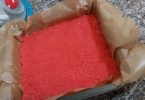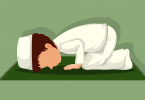Plano Sehar and Iftar Timetable Plano (Ramadan 2024) More Cities: Allen Carrollton...
Discover essential Ramadan guidance at RamadanTips.com, your go-to source for a fulfilling holy month. Explore comprehensive fitness guides, fasting schedules, nutritious recipes, and practical tips to enhance your Ramadan experience.
Ramadan Timetables
Dubai Ramadan Calendar 2024
Dubai Ramadan Fasting Schedule Sehar and Iftar Timetable (March/April 2024) Other...
London Ramadan Calendar 2024
London Ramadan Fasting Schedule Sehar and Iftar Timetable (March / April, 2024) London...
Edmonton Ramadan Calendar (2024)
Edmonton Ramadan Fasting Schedule Sehar and Iftar Timetable (March/April 2024) Taravih...
New Braunfels Tx Ramadan Calendar 2024
New Braunfels Tx Ramadan fasting calendar 2024 with daily Sehar and Iftar timings (PDF download...
Harlingen Tx Ramadan Fasting Timetable (2024)
Ramadan 2024 fasting calendar for Muslims in Harlingen, Tx. Sehar / Iftar Calendar First Day of...
Long Beach Ramadan Calendar 2024
Ramadan Fasting Schedule Long Beach, CA Sehar and Iftar Timetable (March/April 2024) Other...
Sharjah Ramadan Calendar 2024
Sharjah UAE, Ramadan Fasting Schedule Sehar and Iftar Timetable (March/April/ 2024) ...
Lubbock Ramadan Fasting Timetable (2024)
Lubbock Tx Ramadan 2024 fasting calendar in alignment with local dawn and dusk times. Sehar / Iftar...
Lewisville Ramadan Fasting Timetable (2024)
Lewisville Tx Ramadan 2024 fasting calendar as per the city’s sunrise and sunset times. Sehar...



































